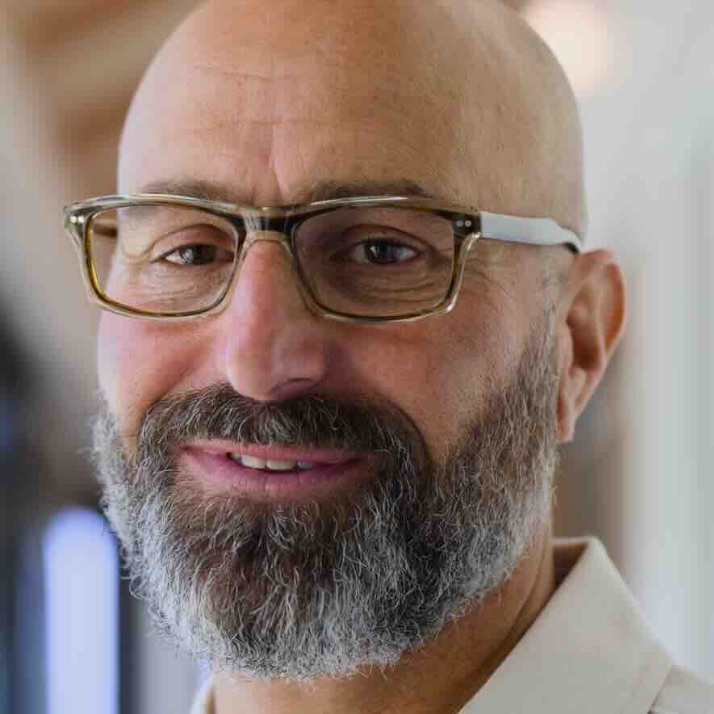Understanding the Basics of Self-Esteem
Self-esteem is the way you see and value yourself—your sense of worth, confidence, and belief in your abilities. It includes how you talk to yourself, how you handle mistakes, and how comfortable you feel being you. Healthy self-esteem tends to look like balanced self-talk, realistic goals, and resilience when things go wrong. Low self-esteem can show up as harsh inner criticism, people-pleasing, avoiding challenges, or feeling “not good enough.”
Being aware of your self-esteem matters because it affects your mood, relationships, choices, and overall well-being. When you notice patterns—like negative self-talk or comparing yourself to others—you can practice kinder thoughts and build skills that help you feel steadier. Small steps such as acknowledging strengths, setting achievable goals, and seeking support can make a real difference. If you’re in St. Louis, knowing this foundation can help you find local resources and take practical next steps with confidence.
Who Can Experience Self-Esteem
Anyone can experience challenges with self-esteem, regardless of age, gender, culture, or background. It’s especially common during life transitions or stress, such as adolescence, parenthood, aging, major career or relationship changes, or when facing discrimination or trauma. People who are frequently exposed to social comparison or social media pressures may also notice more self-esteem ups and downs. These experiences are normal and valid, and support is available for everyone.
Signs You Might Notice
It’s common to have ups and downs with self-esteem, and noticing them is a strong first step. You’re not alone—many people in St. Louis experience these feelings and get support that helps. Be gentle with yourself as you explore what you’re noticing.
- Frequently doubting your abilities or second-guessing decisions
- Focusing on mistakes and brushing off compliments or successes
- Comparing yourself to others and feeling “less than”
- Avoiding new situations because you fear not doing well
- Negative self-talk or calling yourself names
- Struggling to set boundaries or say no
- Relying heavily on others’ approval to feel okay
Factors That Contribute to Self-Esteem
Self-Esteem is shaped by many parts of life—some within our control and many that aren’t. If you’re struggling, it’s not a personal failing. Understanding these influences can help you find compassionate, practical steps forward.
- Biological
- Genetics and temperament
- Brain chemistry and hormonal changes
- Sleep quality and physical health
- Psychological
- Thinking patterns (self-talk, perfectionism)
- Past experiences and trauma
- Coping skills and emotion regulation
- Environmental
- Family and cultural messages
- Peer relationships and social support
- School, work, and community experiences
The Impact of Self-Esteem on Daily Living
Feeling unsure about yourself can touch many parts of daily life. You’re not alone—many people in St. Louis experience this, and small steps can make a real difference.
- Work and career: Confidence can affect speaking up in meetings downtown, applying for new roles, or setting boundaries on the job.
- School and learning: Low self-belief may make classes at SLU, WashU, or STLCC feel harder, from participating to turning in assignments.
- Relationships and social connection: Self-esteem shapes how you communicate with family and friends across the metro area and how comfortable you feel meeting new people.
- Physical health and self-care: Energy for cooking, sleeping well, or getting outside to walk in Forest Park can dip when you’re feeling down on yourself.
- Emotional well-being and coping: Self-criticism can heighten stress, worry, or sadness, making tough days feel heavier.
- Daily routines and community life: Motivation to run errands, ride MetroLink, attend faith or neighborhood events, or try something new—like the City Museum—can be harder to find.
- Decision-making and goals: Trusting your choices, managing money, and planning next steps—whether in North County, South City, or the County—can feel more manageable with steady self-esteem.
Proven Paths to Recovery
Everyone’s confidence grows at a different pace. With the right tools, support, and steady practice, it’s possible to build a kinder view of yourself and feel more capable day to day.
- Cognitive Behavioral Therapy (CBT): Helps you spot unhelpful thoughts, test them against facts, and practice new skills that build realistic, positive self-beliefs.
- Acceptance and Commitment Therapy (ACT): Teaches mindful acceptance of tough thoughts and feelings while taking small, values-based actions that strengthen confidence over time.
- Compassion-Focused or Self-Compassion Training: Reduces harsh self-criticism and builds a warmer inner voice, which supports resilience and healthier self-worth.
- Group Therapy or Peer Support: Offers a safe place to share experiences, learn skills together, and receive encouragement that challenges isolation and boosts self-esteem.
- Medication Management (when depression/anxiety are present): Treating underlying mood or anxiety symptoms with evidence-based medications can lift barriers to confidence and engagement in therapy.
- Lifestyle Approaches (exercise, sleep, mindfulness, purpose-driven activities): Regular movement, good rest, and mindful practices improve mood and energy, while strengths-based activities reinforce a sense of competence and worth.
Beginning Your Journey with Self-Esteem Therapy
Beginning therapy for self-esteem often starts by noticing patterns—self-criticism, avoiding opportunities, or feeling “not good enough”—and deciding you deserve support. Use MiResource’s directory to research providers, filtering by therapy approach (e.g., CBT, ACT), insurance, real-time availability, preferred language, and St. Louis neighborhood to match your needs and schedule. Compare a few options by reading bios and noting specialties, telehealth vs. in-person, and commute fit—whether you’re near the Central West End, Tower Grove, Soulard, The Delmar Loop, Clayton, or Downtown/Midtown, and whether you rely on MetroLink, MetroBus, or drive along I‑64/40, I‑44, I‑55, or I‑70.
When you’re ready, book a first session and use it to share goals, ask about their approach to self-esteem work, and discuss frequency and homework. Plan follow-ups that align with your routine—lunch-hour telehealth from the office, after-work sessions if you commute from Cortex or the Central West End, or weekend mornings if you’re in South City or Dogtown—and set reminders. After a few sessions, reassess fit in MiResource and adjust filters (availability, language, neighborhood) if your needs change.
St. Louis offers welcoming, community-based options to build confidence and connection alongside MiResource’s therapist directory, from peer-led groups to empowerment workshops and youth-friendly spaces near familiar hubs like the Delmar Loop, Forest Park, the Central West End, Tower Grove, and Downtown.
- NAMI St. Louis: Free, peer-led support groups and classes that nurture self-worth and coping skills across the city and county, with frequent meetings near the Central West End and South City.
- YWCA Metro St. Louis: Empowerment and self-esteem workshops for women and girls, with community programs serving Downtown and North City neighborhoods.
- The SPOT (Supporting Positive Opportunities for Teens & Young Adults): Ages 13–24 drop-in center near the Central West End/WashU Med campus offering supportive groups, mentorship, and counseling.
- St. Louis Public Library: Skill-building and personal growth programs at branches like Central Library (Downtown) and Carpenter (South City), plus free meeting spaces for peer networks.
- BJC Behavioral Health: Community groups and recovery-oriented supports that strengthen self-efficacy, with locations serving Forest Park Southeast/Cortex and surrounding areas.
Feeling overwhelmed by low self-esteem can be scary, but you are not alone and help is available now in St. Louis—whether you need someone to talk to right away, a safe place to be evaluated, or a mobile team to come to you. If you’re experiencing thoughts of harming yourself or feel unable to stay safe, reach out immediately; caring professionals can help you stabilize, feel heard, and find next steps.
- If you are in immediate danger or cannot stay safe, call 911 now; in St. Louis you can ask for a CIT-trained officer.
- Call or text 988 for the Suicide & Crisis Lifeline for 24/7 support; locally, you can also call Behavioral Health Response (BHR) at 314-469-6644 or 800-811-4760.
- Go to the nearest emergency room for an urgent mental health evaluation (for example, Barnes-Jewish Hospital, SSM Health Saint Louis University Hospital, or Mercy Hospital St. Louis), or have someone take you.
- For a city mobile crisis response, contact BHR at 314-469-6644 or 800-811-4760 to request a mobile team; you can also dial 211 for additional local resources.
Nature and Well-Being in St. Louis
Spending time in nature can boost self-esteem by shifting focus from self-criticism to the calming rhythms of the outdoors. Gentle activity, sunlight, and fresh air help regulate mood, reduce stress, and create small wins that build confidence. Even short, mindful walks can foster a sense of accomplishment and connection. Choose spots that feel welcoming and go at your own pace.
1) Forest Park: Walk the paved paths around the Grand Basin or the quiet trails in Kennedy Forest for a peaceful reset.
2) Tower Grove Park: Try a lap around the Victorian pavilions and tree-lined paths; bring a journal or pause for deep breathing on a bench.
3) Laumeier Sculpture Park: Combine art and nature on the sculpture trails; set a simple goal like 20 minutes of easy walking.
4) Mississippi Greenway (Riverfront Trail): Enjoy wide river views; pick a stretch for a brisk walk or bike ride to elevate mood and confidence.
Questions People Often Ask About Self-Esteem
1. How do I know if I need professional help for Self-Esteem?
Consider reaching out for support if low self-esteem is making it hard to focus at work or school, leading you to withdraw from friends or family, or causing persistent worry or self-criticism. You might also notice changes in sleep or appetite, feeling “not good enough,” or avoiding opportunities you’d normally want to try. If these patterns are sticking around for more than a couple of weeks or disrupting your daily life, therapy can help you build confidence and coping tools. You don’t have to do this alone—taking the step to talk with a professional is a strong, practical move toward feeling better.
2. What’s the first session of Self-Esteem therapy like?
In your first self-esteem session, you’ll meet the therapist, go over confidentiality, and share a bit about your background at a pace that feels comfortable. You’ll discuss current concerns—like self-criticism, perfectionism, people-pleasing, or negative self-talk—and how they show up in daily life at work, school, or relationships. Together you’ll review symptoms or patterns that affect your mood, confidence, and choices. You’ll then set clear, realistic goals for treatment and agree on a plan for next steps.
3. Are there lifestyle changes that can help with Self-Esteem?
Yes, small lifestyle shifts can boost self-esteem. Regular exercise builds a sense of mastery and improves mood, helping you feel more capable. Consistent sleep and balanced nutrition steady energy and focus, making it easier to challenge negative self-talk and follow through on goals. Mindfulness practices like breathing, meditation, or journaling increase awareness and self-compassion, reducing harsh inner criticism—and these self-care tools work well alongside professional therapy for lasting change.
4. Can Self-Esteem affect physical health too?
Yes—low self-esteem can contribute to physical symptoms like muscle tension, headaches, stomach issues, sleep problems, and fatigue through chronic stress and heightened self-criticism. The mind-body connection means our thoughts and feelings can influence hormones, nervous-system activation, and how the body holds stress. Working on self-esteem in therapy can reduce stress, improve coping, and often leads to better sleep, energy, and overall physical well-being.













